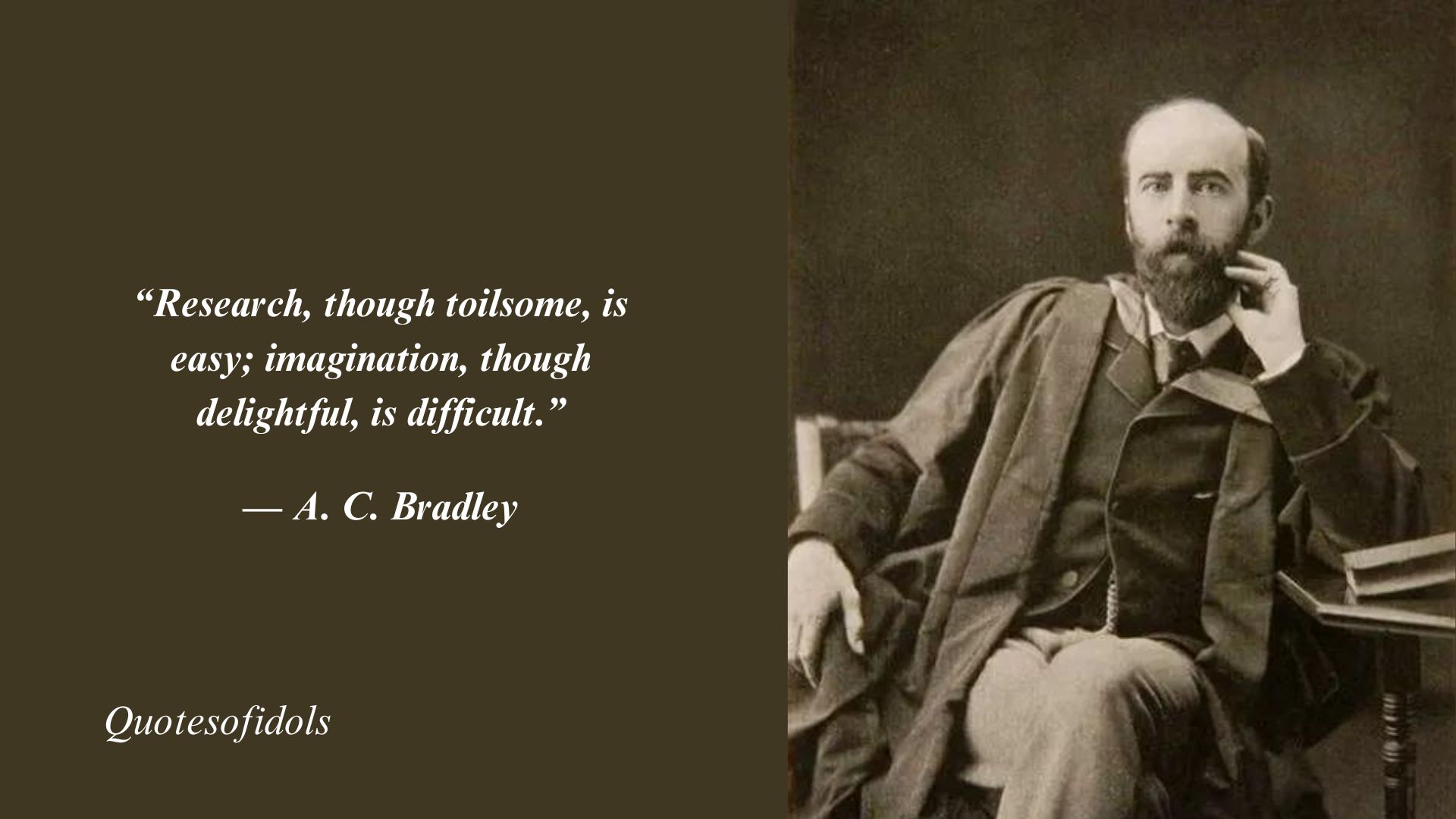
A. C. Bradley (1851–1935) was a British literary scholar and critic, renowned for his work on Shakespeare and his contributions to literary criticism. Born Arthur Compton-Rickett Bradley, he is best known for his influential studies on Shakespearean drama, including his seminal work, Shakespearean Tragedy (1904). This book remains a classic in Shakespearean scholarship, offering detailed analyses of the tragedies of Shakespeare, particularly Hamlet, Othello, King Lear, and Macbeth.
Bradley’s approach combined deep textual analysis with a psychological perspective, contributing significantly to the understanding of Shakespeare’s characters and themes. He was also known for his work on the history of English literature and his efforts to elevate the study of English literature to a more academic and systematic discipline.
A. C. Bradley Quotes
“Macbeth’s deed is done in horror, and without the faintest desire or sense of glory—done, one may almost say, as if it were an appalling duty; the instant it is finished, its futility is revealed to Macbeth as clearly as its vileness had been revealed beforehand.”
— A. C. Bradley
“The centre of the tragedy, therefore, may be said with equal truth to lie in action issuing from character, or in character issuing in action.”
— A. C. Bradley
“The calamities of tragedy do not simply happen, nor are they sent; they proceed mainly from actions, and those the actions of men. We see a number of human beings placed in certain circumstances; and we see, arising from the co-operation of their characters in these circumstances, certain actions. These actions beget others, and these others beget others again, until this series of inter-connected deeds leads by an apparently inevitable sequence to a catastrophe.”
— A. C. Bradley
“The story depicts also the troubled part of the hero’s life which precedes and leads up to his death; and an instantaneous death occurring by ‘accident’ in the midst of prosperity would not suffice for it. It is, in fact, essentially a tale of suffering and calamity conducting to death.”
— A. C. Bradley
“A total reverse of fortune, coming unawares upon a man who ‘stood in high degree,’ happy and apparently secure—such was the tragic fact to the mediaeval mind. It appealed strongly to common human sympathy and pity; it startled also another feeling, that of fear. It frightened men and awed them. It made them feel that man is blind and helpless, the plaything of an inscrutable power, called by the name of Fortune or some other name—a power which appears to smile on him for a little, and then on a sudden strikes him down in his pride.”
— A. C. Bradley
“If we are to include the outer and the inner struggle in a conception more definite than that of conflict in general, we must employ some such phrase as ‘spiritual force.’ This will mean whatever forces act in the human spirit, whether good or evil, whether personal passion or impersonal principle; doubts, desires, scruples, ideas—whatever can animate, shake, possess, and drive a man’s soul. In a Shakespearean tragedy some such forces are shown in conflict.”
— A. C. Bradley
“Such exceptional suffering and calamity, then, affecting the hero, and—we must now add—generally extending far and wide beyond him, so as to make the whole scene a scene of woe, are an essential ingredient in tragedy and a chief source of the tragic emotions, and especially of pity. But the proportions of this ingredient, and the direction taken by tragic pity, will naturally vary greatly.”
— A. C. Bradley
“Research, though toilsome, is easy; imagination, though delightful, is difficult.”
— A. C. Bradley
“The suffering and calamity are, moreover, exceptional. They befall a conspicuous person. They are themselves of some striking kind. They are also, as a rule, unexpected, and contrasted with previous happiness or glory. A tale, for example, of a man slowly worn to death by disease, poverty, little cares, sordid vices, petty persecutions, however piteous or dreadful it might be, would not be tragic in the Shakespearean sense.”
— A. C. Bradley